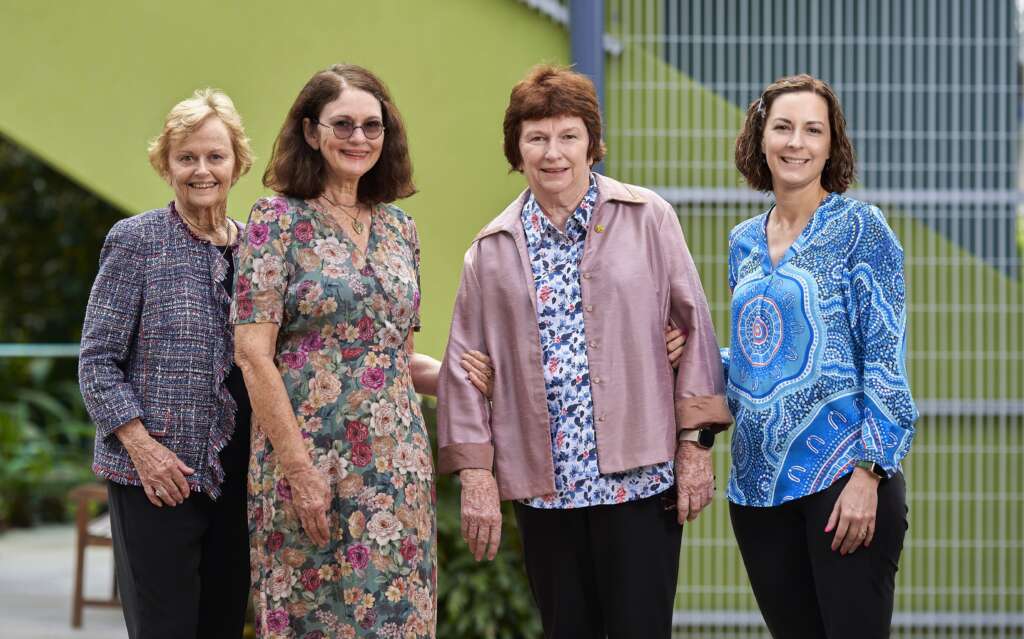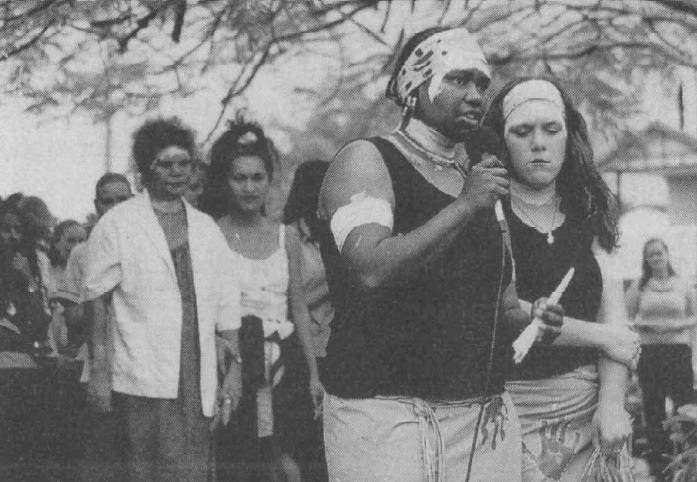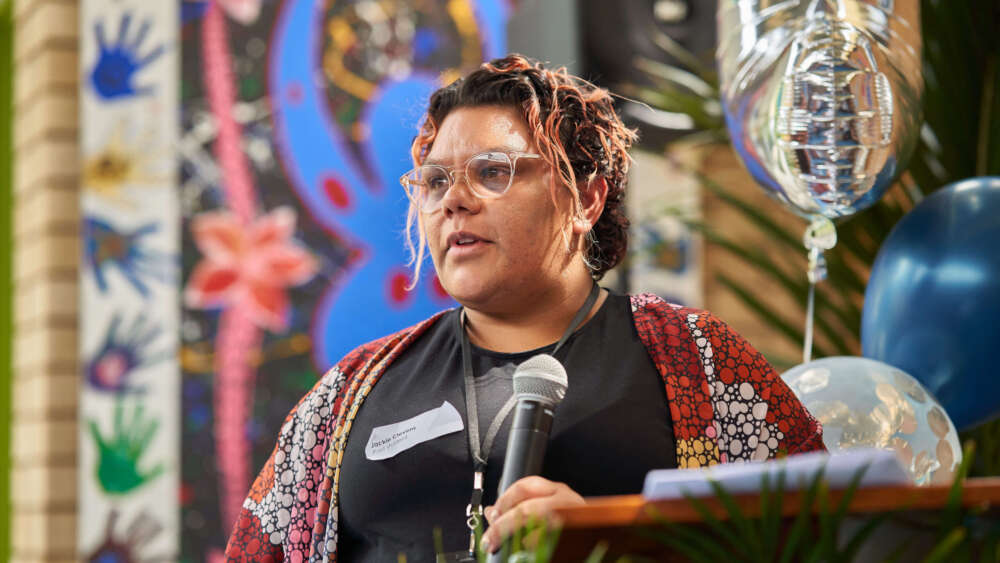Unique school helps floundering students find their feet
“There are many women today who testify that the school saved their lives.”
Jacqui Clevens still remembers the day she got her first ‘A’ grade for a school assessment. The positive impact it had on her as a teenager, who had previously struggled with her education, still reverberates today.
After struggling at numerous mainstream schools, Jacqui enrolled at Carinity Education Southside, an all-girls special assistance school at Sunnybank in Brisbane. The school, established by Queensland Baptists, is celebrating 25 years of supporting young women who have previously faced barriers to education.
It was the first school of its kind in Queensland. Since 1997 the school at Sunnybank has given thousands of vulnerable young women, including young mothers and those who have faced trauma, a chance to transform their lives.
“I had struggled in primary school, which led me to struggle in high school. Having supportive people at Southside that I could go to … it was almost like a family. The teachers were so understanding, supportive and thorough in the way they educated us,” Jacqui said.
“The first ‘A’ I ever got was in Science in Grade 9 at Southside. I still remember it like it was yesterday, the feeling of seeing that ‘A’ on the paper. It gave me so much self-confidence and it felt so good knowing that somebody actually believed in me.”

Carinity Education Southside founders and early supporters – Jenny Medland, Diane Heidke and Colleen Mitrow – with current school principal, Leann Faint.
The school features a purpose-built on-site creche and early learning centre, which has enabled young mothers like Jacqui to access free, quality childcare while continuing their education.
Longtime Southside supporter and student mentor Diane Heidke said the school had assisted young women “floundering in the river of life taking them nowhere” and helped them achieve their full potential.
“This school catches girls at a very vulnerable time and gives them the care and support missing from their lives. In doing so, what seemed impossible before – a good education – especially for young mothers, was within their reach,” Diane said.
“On occasion, the principal at the time, Colleen Mitrow, and one of the Indigenous teachers would drive to known hangouts looking for vulnerable Southside students. They would bring them to school where they were given warm food, counselling and encouraged to resume their studies. There are many women today who testify that Southside Education saved their lives.”
“There are many women today who testify that Southside Education saved their lives.” – Diane Heidke
Carinity Education Southside was born out of Bindari Hostel in South Brisbane, established in the early-1970s to provide “transition from care opportunities” for girls aged 15 to 18 years. A decade later, after it moved to another suburb, Tarragindi, Colleen Mitrow was called in as a relief teacher.
“To my surprise, I arrived at a suburban house and met seven young women who were all in the care and protection of the Department of Family Services. All had suffered extreme trauma as children and had been excluded from other schools,” Colleen recalled.
“Our students yearned to be in school like their peers in the community even though they had been kicked out of their former schools. Often these children had nothing – nowhere to stay, no money and no support.
“These students deserved educational opportunities as much as other Queensland children. We started to devise interesting lessons and teach the students face-to-face. Old computers, desks and chairs and books were donated by various schools. We worked very long hours because at the end of each day, some students had nowhere to live, and accommodation often had to be found. Once located, the young people needed to be transported there. I seldom took holidays since we always had so much more to do.”
“The road to becoming an approved school was a long and difficult one with much lobbying and newspaper coverage. But we managed with the support of politicians and often attended meetings at Parliament House,” said Colleen, who was the principal for 14 years.
“Difference is not valued in our mainstream school system. Young people’s social and emotional needs are often neglected.” – Colleen Mitrow
She said the school’s curriculum was set up specifically to assist young women who had previously struggled in other educational environments.
“Difference is not valued in our mainstream school system. Young people’s social and emotional needs are often neglected which means such disadvantaged and marginalised young people often cannot set or aspire to reaching educational goals,” she said.
“Southside’s key premise of accepting young women and their families with ‘unconditional positive regard’ was key to our success. We treated all the girls with the greatest respect and tailored a special response catered to their individual needs. What marked our school as different was probably the absolute acceptance of each girl as unique, each bringing her own special gifts to our school community. It was up to us to help them to recognise their abilities and to regain confidence and hope for a future.”

Students at the official opening of Southside Education’s then-new Sunnybank campus in 2002. Photo courtesy of QB Archives.
In 2002, Carinity Education Southside moved to its current location at Sunnybank, the former site of a Masonic Lodge. One year later, Search Light opened a crèche nearby to provide free childcare and family support services to young mothers and pregnant students attending the school.
“These young people, in spite of the huge obstacles they had to overcome, always showed so much tenacity and also love and respect. They were my teachers and my heroes,” Colleen said.
“Because this school model was such a success, I was invited by education authorities to discuss the concept of funding and setting up other special assistance schools in Queensland.”
“They helped break down a lot of barriers for me, as an Aboriginal person and as a young mum.” – Jacqui Clevens
Since graduating from Year 12 in 2007, Jacqui has worked in residential care and community services, supporting kids “who went through the same sort of things I went through as a teen.”
“If it wasn’t for Southside, I think things would have been a lot more difficult for me. A lot of my peers that I kicked around with as a teenager, they’re now heavily involved in drugs and alcohol or they’re dead or in jail,” Jacqui said.
“Southside helped me in so many ways. They helped me find my voice. They helped break down a lot of barriers for me, as an Aboriginal person and as a young mum. I wouldn’t be as successful as I am without Southside.”
Colleen has remained in touch with many former Southside students. While most of the women have enjoyed brighter futures since leaving school, Colleen acknowledges others sadly still face difficulties in their life.
“Young women, if given the opportunity, can succeed and flourish like those born into more fortunate circumstances. We were able to provide the setting that helped them to achieve education goals,” Colleen said.
“Some did not succeed in educational terms but still grew into strong and resilient human beings who give so much to their families and communities. Many ex-students have done very well; others still struggle in a community that continues to put up barriers for them.”
Email This Story
Why not send this to a friend?



